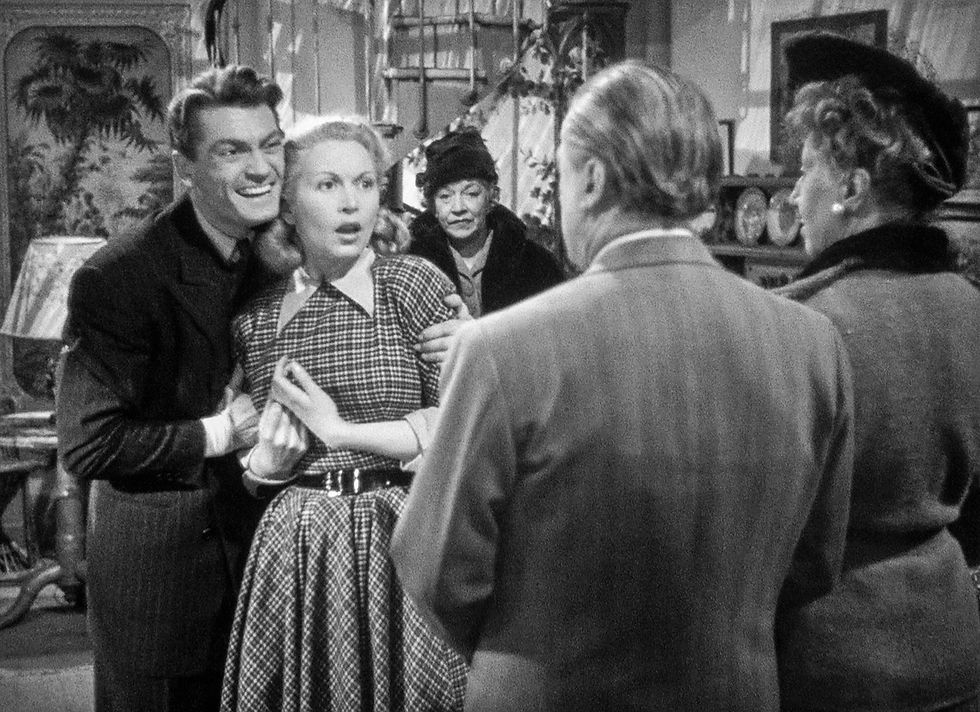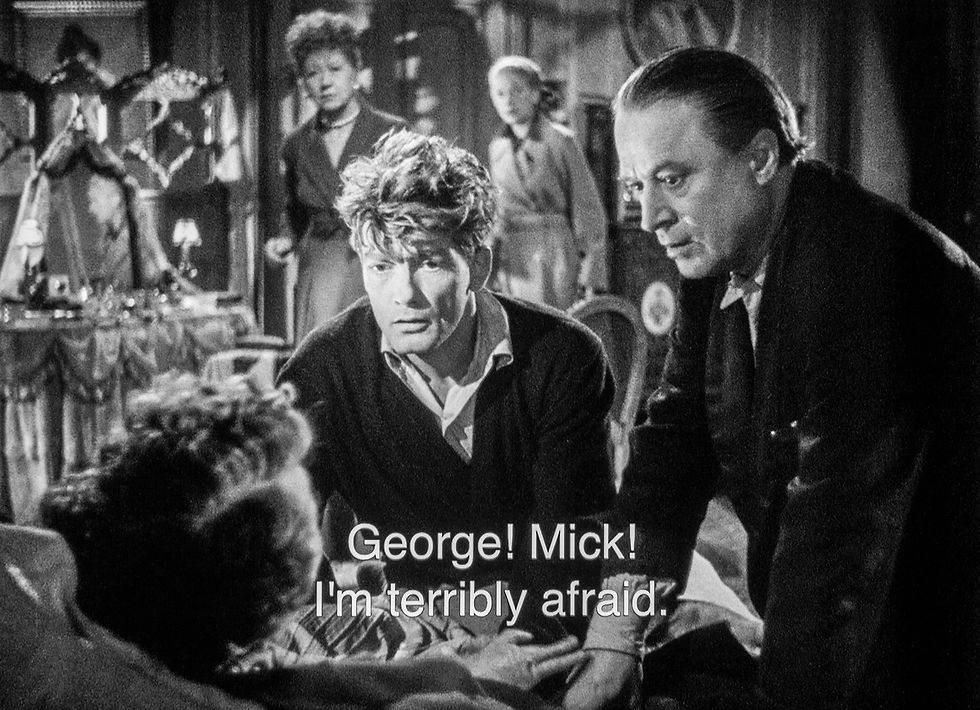Farce and drama fill Cocteau 70th anniversary film: “Les Parents Terrible”
- Peggy Earle

- Nov 5, 2018
- 3 min read
Updated: Jun 15, 2022
BLU-RAY REVIEW / FRAME SHOTS

Michel (Jean Marais) showers his mother, Sophie (Yvonne de Bray) with kisses. Cocteau's cinematic adaptation of his own play utilizes the film medium with abundant close-ups.
(Click an image to scroll the larger versions)
“LES PARENTS TERRIBLE (THE STORM WITHIN)”
Blu-ray, DVD; 1948; Not Rated; streaming via Amazon Video, Google Play, Vudu, YouTube
Best extra: Interview with Assistant Director Claude Pinoteau
JEAN COCTEAU (1889-1963) was a major figure in the arts, his diverse talents branching into literature, poetry, theater, music, drawing and, eventually, film. During his often-troubled lifetime, which included a long bout of opium addiction, he hobnobbed with virtually every cultural icon of his times, from Marcel Proust to Salvador Dalì; Coco Chanel to Igor Stravinsky; Jean Genet to Anna Pavlova; Jean-Paul Sartre to Marcel Duchamp.
Cocteau’s most famous and beloved film was “Beauty and the Beast” (1946), followed by an adaptation of his stage play, “Les Parents Terrible,” a.k.a., “The Storm Within.” The plot is pure soap opera, focusing on a family and an Oedipal love triangle, whose pivotal element is the impossibly handsome Michel (Jean Marais, who was Cocteau’s lover for a while). Michel and Sophie (Yvonne de Bray), his ailing mother, have a way-too-close relationship, while Georges (Marcel André), his father, is a far from faithful husband. Sophie’s sister Léo (Gabrielle Dorziat) is the common-sensical family member in the large Paris apartment, and she bears a sad secret of romantic sacrifice.



Trouble arrives in the form of Michel falling in love with a pretty young woman named Madeleine (Josette Day), something Sophie cannot begin to tolerate. Meanwhile, Madeleine has her own secret, involving Georges. You get the idea: Plenty of melodrama, with a soupçon of French farce tossed in. The fact that Cocteau had his own profound attachment to his mother gives “Les Parents Terrible” some context, but the very existence of this Cocteau production adds to the film’s historical and artistic value.
This Cohen Film Collection Blu-ray, celebrating “Les Parent Terrible’s” 70th anniversary, is a very fine restoration, with the black and white cinematography looking filmic and nicely grainy. Fine detail is quite sharp and contrast extremely satisfying. The mono audio is also very good, with French dialogue clear (subtitles are given) and the minimalist score by Georges Auric never intrusive.
Extras include a new introduction by Cohen Film Collection favorite, and Columbia University film studies professor, Richard Peña; and several screen-test vignettes. “Learning to Direct,” the interview with Pinoteau, is particularly interesting. He had been hired, initially, as the second assistant director for “Les Parents Terrible.” When the first AD, who was also an editor and began giving Cocteau too much criticism during the shoot, got on Cocteau’s nerves, he replaced him with Pinoteau. Pinoteau calls the experience, “quite an extraordinary school.” Cocteau, notes Pinoteau, believed that film sets were also characters, such as with the apartment in the film, and that it had its own “tics and personality.”


The director had told Marais to “bring his own mess” to the film, and Marais obliged, even to the point of sleeping in the apartment one night. Pinoteau recalls an “excellent” atmosphere during the production, with Cocteau calling everyone “mon chéri” (my dear), and being consistently courteous, as well as always elegantly dressed.
Pinoteau talks about the film’s ending, for which Cocteau insisted upon a dolly shot, with the camera pulling away from the family group. But since the floorboards in the apartment were uneven, it was impossible to get a smooth track. Cocteau’s solution was to add the sound effects of rolling wheels and horses’ hooves, with his own voice narrating: “… and the caravan continued on its way.” The jiggling image meshed perfectly with the words, before the scene faded to black.
— Peggy Earle



MOVIE TRAILER




Comments